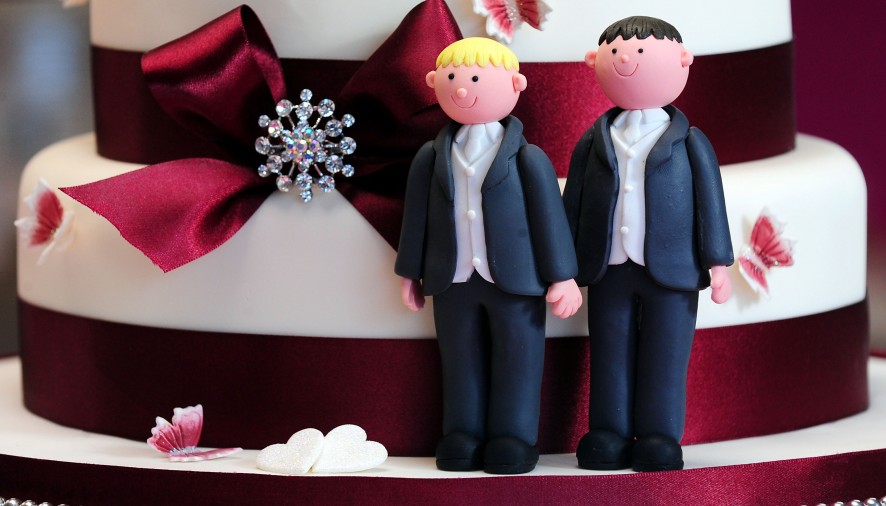Yes – Juliette Rowsell
In the 21st century, religion is no excuse for discrimination. Whether it’s homophobia, transphobia, racism, sexism, or anything else besides we should be doing all we can to end such unfounded prejudices. In a society which prides itself on liberalism and tolerance we should be coming together to shun such outdated views to where they belong – in the past.
Even if it was an excuse, in a secular society personal views and work should be kept separate. Just because someone is different to you does not give you the right to marginalise them. To refuse to serve someone simply because they are ‘different’ is to take a step into the past, back to the days of segregation. It would be unthinkable not to serve someone based on skin colour or sex, so why is it not the same for sexuality?
Such discrimination is a reminder for LGBTQ* individuals of the heavy inequality they still face. Despite the popular belief that we live in a liberal and accepting society, the number of reported homophobic hate crimes in the UK rose by 22% last year to 5,597. However, the actual number of hate crimes committed is estimated to be around four times higher than this as many are still too afraid to speak out. Whether it be children using homophobic slurs on the playground or grown adults refusing to treat LGBTQ* individuals like human beings, prejudice is something that affects the lives of every non-hetero, non-cis individual.
Simply refusing to interact with those we don’t agree with might seem childish but it has serious repercussions for society as a whole. It rationalises hate, normalises discrimination and teaches young people that it’s ok to treat people differently just because they are different to ourselves.
Ultimately, however, we must remember it is only a minority of people who would be willing to use ‘religion’ as an excuse for their prejudiced actions. But in a world where many LGBTQ* individuals are made to feel marginalised as a result of religion, religion needs to be able to accept criticism and adapt. For too long religion has been put on a pedestal which has been allowed to get away with open acts of sexism and homophobia. In no other part of society would you able to get away with such discriminatory behaviour, so religious institutions should be as vulnerable to criticism as any other. LGBTQ* activists work tirelessly to promote equality, but it’s about time that the straight people of the world took it upon themselves to end such homophobia; there is only so much success a minority can achieve while the rest of society remains passive.
While most people would be advocates of equality, the fact that these questions even still need to be asked shows how LGBTQ* rights have yet to be fully established. Ireland’s gay marriage referendum last year highlighted how gay rights are still very much in the early stages; they are not set in stone.
When the day comes where we stop having to question the establishment of equal rights, we will have equality. But, until then, LGBTQ* individuals will continue to live in a perpetual state of not knowing who will question their right to a ‘normal’ life next.
No – Rich Kengal
I wish I could say that no person would ever face discrimination because of their gender or sexuality. I wish I could say that no person’s religion would ever cause them to be prejudiced. To be honest, I wish I could say this debate wasn’t needed. But I can’t, so it is.
Wedding planners, florists, priests, bakers B&B owners. Just a handful of the professions where people have cited their religion as a reason when refusing to serve homosexual couples. I have little time for these people. I think they’re narrow-minded to assume that their way of life is the only way. And for the most part, I think they are wildly stretching their interpretation of religious texts to justify their own ignorance. But the fact is these are real people with real feelings, exactly the same as the customers they serve. Rightly or wrongly the stress caused to them from being forced to do something which they see as a sin, is no less real than the stress on the people they discriminate against. In a way its a question of practicality and compromise, why would a gay couple want to support a homophobic business anyway? And can you justify putting a religious person through emotional distress to support a capitalist business ideal? It’s not that I think these are opinions we can let slide indefinitely, but whilst they are still around you cannot change them by forcing people to go against their beliefs.
The issue of separating religion from work is also impractical. Secularism where all religions are equally silenced might be perversely fair, but you only have to look at France’s issues to see it simply doesn’t work. To allow equal rights to all religions you cannot ask someone to leave their beliefs at home. For most changing their religion is as unthinkable as changing their sexuality. A Christian does not stop being a Christian based on geographical location. And, much as I loathe to admit it, to some people serving a gay couple is going against their religion.
I wish I could say that every person was free to live as themselves and to love who they chose. I hope that one day, and I hope its soon, people will realise that who others love does not detract from their faith. But until then it as a wrong to force a person to repress their religion as it is to force a person to repress their sexuality, it just won’t work.
Image: 1.) Rui Vieira/PA 2.) Rex Features


